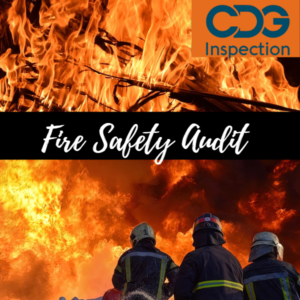The Significance of Fire Safety Auditing
Identifying Potential Hazards
Fire safety audits are designed to systematically evaluate a building’s fire safety measures and identify potential hazards. Through careful inspection and analysis, auditors can pinpoint areas that are susceptible to fire incidents. This includes examining electrical systems, heating equipment, flammable materials storage, and fire alarm systems, among other crucial aspects. By identifying these potential hazards, corrective actions can be taken promptly to mitigate risks.

Compliance with Regulations and Standards
1.1. Adhering to fire safety regulations and standards is essential for any organization or individual. Fire safety auditing ensures compliance with local, national, and international regulations, such as building codes and fire safety protocols.
1.2. Regular audits help determine if a structure meets the necessary requirements, ensuring that all safety measures are in place and functional. Compliance not only prevents legal consequences but also provides peace of mind, knowing that the premises are adequately protected.
Enhancing Emergency Preparedness
2.1. In the event of a fire, preparedness is key to minimizing damage and saving lives. Fire safety audits contribute to enhancing emergency preparedness by evaluating evacuation routes, fire extinguisher placements, emergency lighting, and signage.
2.2. By ensuring that these elements are optimized and accessible, individuals can respond effectively during an emergency. Additionally, audits may involve conducting fire drills and training sessions to educate occupants about proper evacuation procedures and the use of firefighting equipment.
Continuous Improvement
Fire safety audits are not a one-time affair but a continuous process. Regular audits allow for ongoing improvement of fire safety measures. By identifying weaknesses, evaluating the effectiveness of existing systems, and implementing necessary updates, the overall fire safety of a building can be enhanced. This proactive approach ensures that safety measures remain up-to-date and in line with evolving fire safety standards.
The Role of Professionals in Fire Safety Auditing
Fire safety auditing requires expertise and knowledge in fire prevention and emergency response. Engaging the services of professionals who specialize in fire safety is crucial for conducting comprehensive audits. These experts possess the necessary skills to identify potential risks and provide recommendations for improvements. Their expertise ensures that fire safety audits are conducted efficiently and in accordance with the highest standards.
Conclusion
- Fire safety auditing is the cornerstone of maintaining a secure and protected environment. By identifying potential hazards, ensuring compliance with regulations, enhancing emergency preparedness, and continuously improving safety measures, fire safety audits play a vital role in safeguarding lives and property. Prioritizing regular audits and engaging professionals in the process are essential steps toward creating a safer world for everyone.
- Remember, fire safety is not something to be taken lightly. By conducting audits and implementing the necessary preventive measures, we can reduce the risks associated with fire incidents and protect what matters most.

